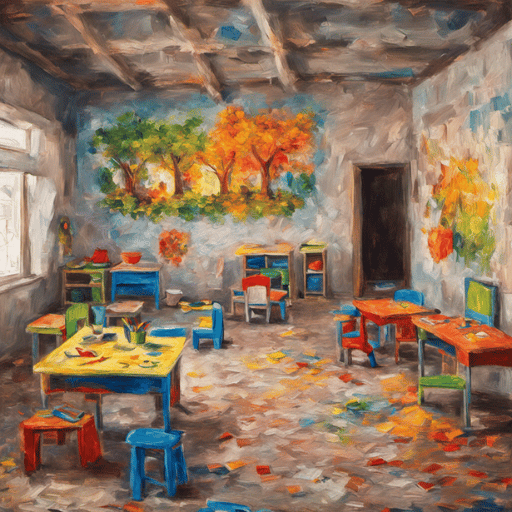Event planning in preschools holds significant importance as it plays a pivotal role in fostering holistic child development and creating memorable learning experiences. These events not only offer a platform for children to showcase their talents and skills but also provide opportunities for social interaction, emotional growth, and cognitive development. Well-executed event planning engages parents, teachers, and young learners in a collaborative effort that enhances the sense of community within the preschool. By carefully organizing and structuring various events, preschools can establish an environment where children thrive, parents actively participate, and lifelong positive impressions are formed. Let’s look at an example Community Engagement Days event planning template you can use in your Educação Infantil office in Brazil.
Event description/objective: Hosting local artists, musicians, or community leaders to share their expertise.
Event Planning Template:
Event Name: Community Engagement Days
Event Date: [Date]
Event Time: [Time]
Event Location: [Venue]
Objective:
The objective of the Community Engagement Days event is to bring together local artists, musicians, and community leaders to share their expertise with the attendees. The event aims to foster community engagement and provide educational and entertaining experiences for children in the Educação Infantil service.
Event Schedule:
1. Opening Ceremony:
– Time: [Time]
– Description: The event will kick off with an opening ceremony, including a welcome speech and introduction of the participating artists, musicians, and community leaders.
2. Workshops and Demonstrations:
– Time: [Time]
– Description: Various workshops and demonstrations will be conducted by the invited artists, musicians, and community leaders. These sessions will provide hands-on experiences and educational activities for the children attending the event.
3. Performances:
– Time: [Time]
– Description: Local musicians and artists will showcase their talents through performances, including music, dance, theater, or any other form of artistic expression. These performances will entertain and inspire the attendees.
4. Expert Talks:
– Time: [Time]
– Description: Community leaders and experts will deliver informative talks on topics relevant to the Educação Infantil service. These talks will provide valuable insights and knowledge to the attendees.
5. Interactive Activities:
– Time: [Time]
– Description: Interactive activities, such as art stations, face painting, storytelling, or games, will be available for the children to participate in. These activities will engage the attendees and encourage creativity and social interaction.
6. Closing Ceremony:
– Time: [Time]
– Description: The event will conclude with a closing ceremony, expressing gratitude to the participants and summarizing the highlights of the day. Certificates or tokens of appreciation may be presented to the artists, musicians, and community leaders.
Event Promotion:
1. Social Media:
– Create event pages on social media platforms (Facebook, Instagram, etc.) to promote the event.
– Regularly post updates, teasers, and highlights related to the event.
– Encourage attendees to share the event with their networks.
2. Flyers and Posters:
– Design and distribute flyers and posters in strategic locations, such as schools, community centers, and local businesses.
– Include event details, highlights, and contact information.
3. Local Media:
– Contact local newspapers, radio stations, and online news platforms to promote the event.
– Submit press releases and event details for publication or coverage.
4. Collaborations:
– Partner with local organizations, schools, or businesses to co-promote the event.
– Utilize their networks and resources to reach a wider audience.
Event Logistics:
1. Venue:
– Secure a suitable venue that can accommodate the expected number of attendees and activities.
– Ensure the venue has necessary facilities, such as restrooms, seating arrangements, and stage area.
2. Equipment and Supplies:
– Identify and arrange for the required equipment, such as sound systems, microphones, projectors, and art supplies.
– Ensure there are enough supplies for the interactive activities and workshops.
3. Invitations and RSVPs:
– Send out invitations to the local artists, musicians, and community leaders, explaining the event details and their role.
– Request RSVPs to confirm their participation and plan accordingly.
4. Volunteers:
– Recruit and train volunteers to assist with event setup, registration, guiding attendees, and managing activities.
– Assign specific roles and responsibilities to each volunteer.
5. Safety and Security:
– Implement safety measures, such as first aid kits, emergency exits, and crowd control strategies.
– Coordinate with local authorities, if necessary, to ensure a safe and secure environment.
6. Budget:
– Create a detailed budget, including estimated expenses for venue rental, equipment, supplies, promotion, and any other relevant costs.
– Seek sponsorships or funding, if required, to cover the expenses.
Evaluation:
1. Feedback Collection:
– Distribute feedback forms or surveys to the attendees, artists, musicians, and community leaders to gather their opinions and suggestions.
– Encourage open and honest feedback to identify areas of improvement.
2. Data Analysis:
– Analyze the collected feedback to identify strengths, weaknesses, and areas for improvement.
– Use the data to make informed decisions for future events.
3. Thank You Notes:
– Send personalized thank you notes or emails to the participating artists, musicians, community leaders, volunteers, and sponsors to express gratitude for their contribution.
4. Post-Event Report:
– Prepare a comprehensive report summarizing the event, including attendance numbers, feedback analysis, financial summary, and lessons learned.
– Share the report with relevant stakeholders and use it as a reference for future events.
Note: This event planning template can be customized further based on specific requirements and preferences
Ready to start planning?
Click the button above to get our Educação Infantil event planner that can be used to plan this event, see all your upcoming events on a calendar and make your event planning process easier.

